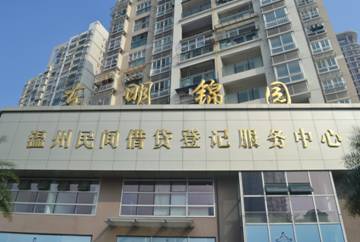Financial reform in Wenzhou
- By Corey Cooper
 0 Comment(s)
0 Comment(s) Print
Print E-mail China.org.cn, September 13, 2012
E-mail China.org.cn, September 13, 2012
Public-private banks, private lenders and corporations are teaming up to cut lending costs for small and medium-sized enterprises (SMEs) as part of twelve new measures implemented in the city since it was designated as a pilot zone for financial reform by the State Council in March.
As part of the reform scheme, private enterprises are encouraged to invest in rural banks and credit companies. The idea for the pilot zone came largely in response to a surge in underground lending in Wenzhou in the fall of 2011 that eventually led over 80 entrepreneurs to commit suicide or flee the country due to their inability to pay back high-interest loans, according to reports from the Xinhua state news agency and other media.
After the pilot zone launched on Mar. 28, the Wenzhou city government responded by building a private lending service center, which opened in the city’s Lucheng District in April. By linking lenders, borrowers and third party providers, the center is better able to encourage transparency during the loan process.
Wenzhou-based industries such as Jiangnan Valve Co. Ltd., which took a hard hit during last year’s crisis, are also taking advantage of the relaxed restrictions on raising private capital through a private placement bond pilot program, which is regulated through the Shanghai Stock Exchange.
Meanwhile, Wenzhou-area lenders to SMEs, such as Yueqing United Rural Bank, operate as majority-private sector entities, with public bank(s) maintaining a minority stake in order to maintain a certain degree of regulatory control. The modern incentives and more personalized service s of these microloan specialists provide rural residents, hoping to set up their own agricultural or small commercial ventures, with new credit options. Bank executives, including Yueqing United Rural Bank Director Wu Daming, expect that such new features will help restore the confidence shaken by the 2011 underground lending bubble.







Go to Forum >>0 Comment(s)